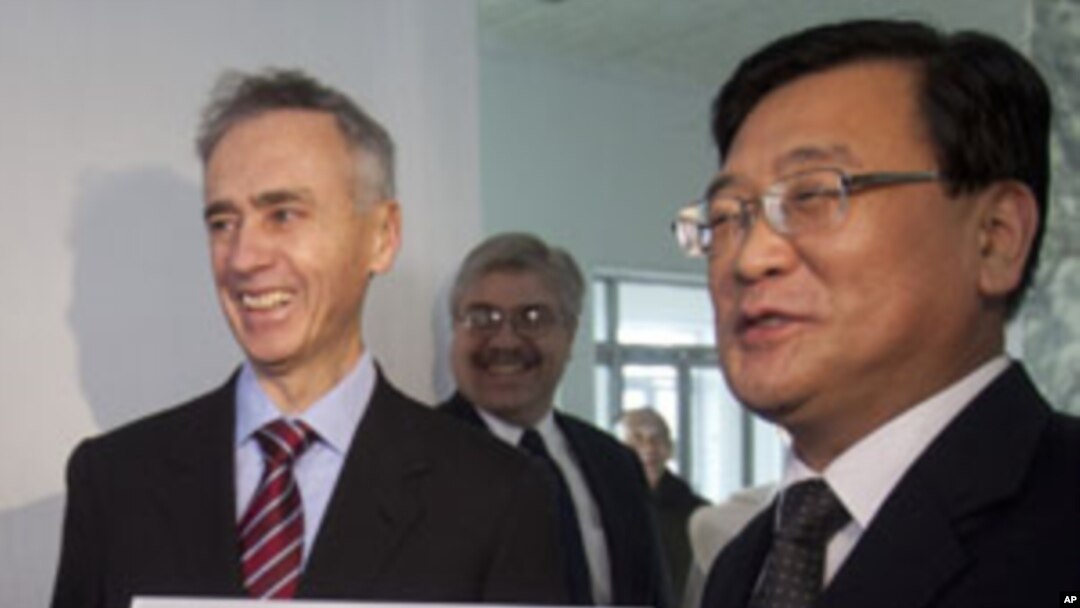The Associated Press has taken the unprecedented step of opening a full news bureau in North Korea. But there are questions about whether a Western news agency, with rigid journalistic standards, will be able to effectively operate in one of the world's most closed and repressive societies.
It took The Associated Press and the North Korean government almost a year to finalize the agreement to open a full-time news bureau in the North Korean capital, Pyongyang.
An opening ceremony was held Monday at North Korea's state-run news agency, where the AP bureau is located.
AP says the news bureau will be staffed by a reporter and a photographer, both North Koreans, under the supervision of two Americans who will make frequent trips to Pyongyang.
The head of the Korea Central News Agency, Kim Pyong Ho, was quoted at the ceremony as saying the AP has promised to report on North Korea “with fairness, balance and accuracy.”
Kim also noted the AP was given permission to expand its operations in the country despite the lack of diplomatic relations between North Korea and the United States, where the 165-year-old news cooperative is based.
Executive editor Kathleen Carroll, speaking from Pyongyang, says the AP in North Korea will adhere to the same standards and practices as it does at all its bureaus worldwide.
"There's not a government that we cover that doesn't occasionally read a story or look at a picture or a piece of video and have an opinion about it, that they may not like it," she said. "We have those conversations all the time and I don't expect they'll be any different here when they occur."
But Professor B.J. Lee at the School of International Service of Sookmyung Women's University in Seoul says disagreements between the AP and Pyongyang's reclusive government could prove problematic.
"AP represents this typical Western objective journalism," said Lee. "They would like to get any possible information out of the North Korean government. But, of course, the North Korean government has so many things to hide at this particular point. There will be that kind of conflict between the AP and the North Korean leadership, particularly about this power transition from Kim Jong Il to Kim Jong Un."
The bureau's official opening comes a month after North Korea's leader died. Kim Jong Il's third son, in his late 20s, has been deemed his successor, an attempt to pass power in Pyongyang to a third generation of the family.
Lee, a longtime reporter for Newsweek magazine, says South Korea's media and government will be closely monitoring the AP reports from Pyongyang, where information is tightly controlled by the state.
"South Korean media have also tried to set up some kind of operations over there for many, many years. It's very difficult for them to get anything out of North Korea. So they'll be very keen on what kind of information AP will bring out of North Korea. The South Korean government will also be very much interested," said Lee.
The two Koreas have no diplomatic relations and technically remain at war since fighting to a stalemate in the early 1950s.
South Korea's Unification Ministry and Foreign Ministry declined comment about the AP's news bureau in Pyongyang. AP has had a small video bureau there, with North Korean staff, since 2006. The news agency has had a bureau in South Korea for many decades.
Associated Press Opens News Bureau in North Korea

AP President Tom Curley, left, and Korean Central News Agency President Kim Pyong Ho hold an Associated Press Pyongyang sign before hanging it on the door of the new AP bureau in Pyongyang, Jan. 16, 2012.

